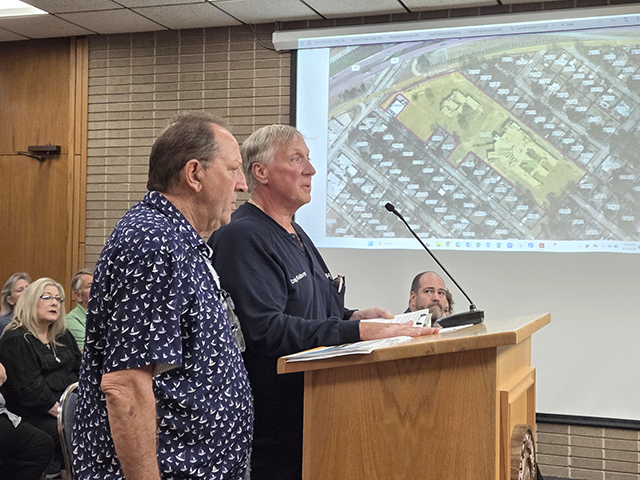Texas school voucher debate intensifies as PAISD leader highlights funding gaps
Published 3:58 pm Friday, March 7, 2025

- The Port Arthur ISD Administration Building. (Cesar Cardenas/The News)
|
Getting your Trinity Audio player ready...
|
Texas Legislature, along with many of its leaders, have made school choice a priority this legislative session in an attempt to promote “additional educational options”. Port Arthur Independent School District Superintendent Mark Porterie isn’t so sure.
Porterie attended private schools as a child, now he heads Port Arthur ISD, the second largest school district in Southeast Texas. He says that the importance of public education comes from its diversity and its requirement to meet the needs of all students regardless of income, race, or income.
“Education is a deep personal choice for parents and families. Each parent has the right to select the educational environment they believe is best for their children, whether that be a public, private, or charter school,” Porterie said. “However, as we navigate the growing conversation around educational vouchers, we must prioritize strengthening public schools to meet the diverse needs of every learner.”
A narrow majority of the Texas House has signed on to support the school voucher bill that would use tax dollars to help cover the cost of private and charter schools in Texas. This marks a critical point for school vouchers as the bill died in the House in 2023 but does not guarantee that the bill will become law.
Public Schools in Texas are funded based on student attendance, raising concerns that parents opting to send their child to a private school may strain public schools in the area.
The proposed bill currently has two versions that the Texas Legislature must come to an agreement on before becoming law.
The current Senate version sets aside $10,000 for eligible students and $11,500 for students with disabilities. The House version raised the amount for disabled students to $30,000. The Senate plan is to establish a lottery system eligibility where 80% of students who would receive this funding would be those who have previously attended public schools and are either low-income or have a disability. The remaining 20% would be filled by every other eligible applicant.
The House proposed a tiered system that would prioritize students with disabilities who earn up to 500% of the federal poverty level, which is estimated at $156,000 for a family of four, to be top priority with families who do not have a disabled child to be lower on the priority base on estimated income.
Currently in Texas public schools receive roughly $6,300 per student from the State.
“But I think if (the Legislature) is saying that it’s going to cost the private sector over $10,000, $11,000 to teach a child, I don’t know how you think that we can do it for 5000 less,” Porterie said. “You’re going to give us $6,300 and give the private sector $11,000; there are inequities going on with that.”
Porterie is concerned that the school choice program may create inequities within the education system rather than enhancing educational opportunities for all students in Texas.
“To that end, it is vital to emphasize that every student should be afforded the same amount of funding to ensure quality educational outcomes,” Porterie said.” If we are going to be serious about equitable educational access, the funding model must ensure that it does not favor one type of institution over another. Any system that inadvertently prioritizes some students over others undermines our commitment to inclusivity and diversity, core values that are integral to our mission in education.”
Other concerns of those skeptical of school vouchers is that private schools are not required to take in any students, potentially excluding children with special needs or behavioral problems, an ability that public schools do not have.
“Public schools don’t have a choice when students come to us, no matter if their child is under the special ed umbrella, if they have a discipline problem, if they miss too many days in school, we still have to work with that,” Porterie said. “We have to find a way to work with theme, because we know they’re going to be in this community or some community as an adult and they need to able to read they have to be able to make decisions that are profitable not only for their lives and their families but for those of us that they live around.”
The Texas Legislature is still planning to deliberate on this issue for the weeks to come to hammer out the details of what the final version of the program might look like. If the program does pass, it’s stated that it would not go into effect until the 2026-2027 school year to monitor how the program does in practice.





